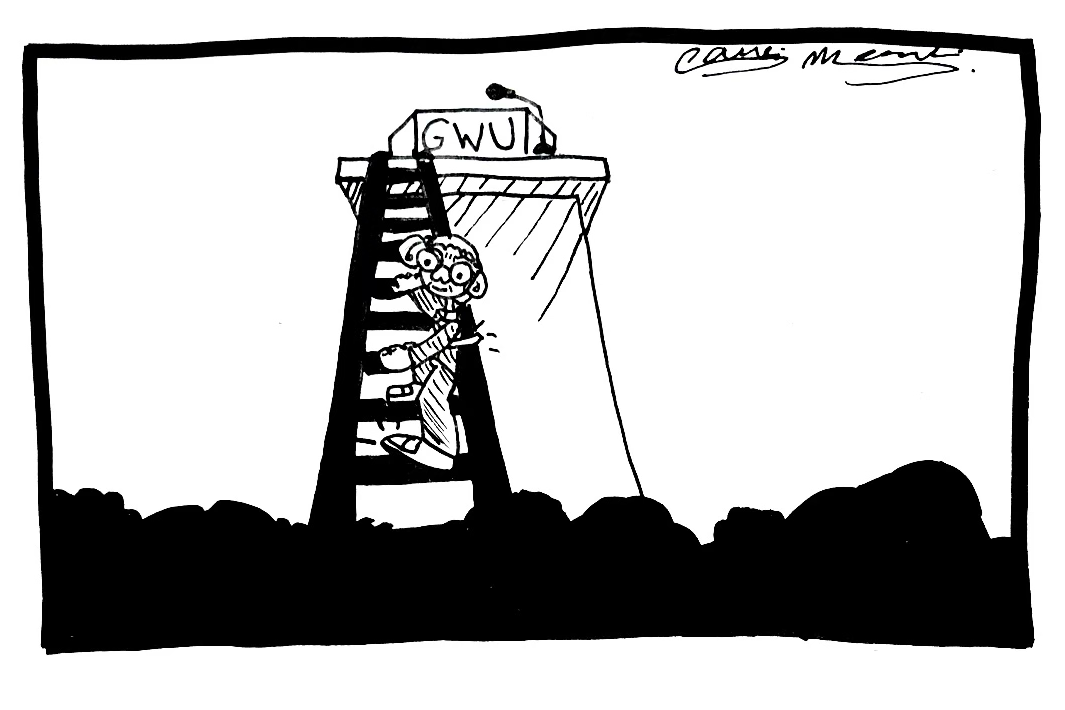Ninety-seven days ago, I wrote an opinion piece about what Vice President Kamala Harris’s Democratic nomination meant for me as a Black woman and the country. The article, while hopeful, gave reasons for why the nomination and Harris’ then-hypothetical election could be a turning point in our lives and our country. Like many others, I had dared to dream of progress, of seeing someone who looked like me in one of the highest offices in our land. But as I went to bed on Tuesday, the darker and more cynical truth crept in. Donald Trump was elected as the 47th president of the United States in a quick and decisive turn of events.
I remember being 13 when Trump was first elected. There was an air of fear among people of color about how we would be treated given the inflammatory language, extremist ideals and general behavior that his campaign praised. With the reality of the race settling on me, I found those fears returning. The reality weighed on my shoulders, each news alert on my phone feeling like another stone added to an already-crushing burden.
The profoundly human desire to wallow and mourn immediately overcame me. I was in the scariest parts of my mind, wondering how we would survive. How would I keep myself, as a Black woman, and my friends safe and cared for? Trump encourages violence and shoots down critiques as fake news. He encourages silencing opposition and supports the demonization of others. In quiet moments since the election, I catch myself mapping out mental safety plans, calculating which spaces might become less welcoming and which conversations might become more dangerous. I am not alone in these fears and worries – I see it in my friends’ drawn faces, the concerned texts from family members and the heavy sighs of strangers on the street.
Simultaneously, anger and fear bubbled up like a volatile cocktail in my chest. The human desire to find who to blame and relentlessly prosecute them — at least socially — is powerful. There is a temptation to point fingers, whether it be at the media, nonvoters, those who chose solidarity with their party over all else or a system that seems increasingly broken.
Yet, I urge us all to avoid fear and blame. We are all on this campus together. There is no way to know who voted for whom or for what, and for the sake of this community, I urge us all to find a path forward. Be angry if anger is how you feel — for many of us, this loss is a massive one and one that finds us furious. There is no shortage of ways that a second Trump term is frightening and worrisome. The potential implications for civil rights, democratic institutions and the very fabric of our society loom large. But dwelling in that fear, letting it consume us, only depletes the energy we’ll need for the work ahead.
This moment asks us to hold two truths side by side: that we can acknowledge our fear and grief while refusing to let them paralyze us, and we can recognize the gravity of our situation while believing in our collective power to face it. Harris, in her concession speech, said the inspiring words: “The light of America’s promise will always burn bright as long as we never give up and as long as we keep fighting.”
Humans are deeply resilient — we have stood standing through dark moments in history and found our way out. We saw this in the first Trump presidency: When his administration announced the “Muslim ban,” thousands of Americans rushed to airports to protest and offer legal aid. When DACA was threatened, communities rallied to protect Dreamers, providing legal resources and sanctuary. When family separation policies were implemented at the border, organizations like RAICES and the ACLU mobilized unprecedented support and legal assistance.
The resistance wasn’t just grand gestures. It lived in daily acts of defiance and care: teachers protecting undocumented students, librarians safeguarding information access, scientists archiving climate data and journalists maintaining their commitment to truth despite constant attacks on the press.
When I acknowledge my fear, I’m not just naming an emotion. I’m honoring the legitimate concerns of communities like mine that have historically bore the brunt of political backlash. My fear comes from knowing history and understanding how policies can unravel protections. This fear is rational, even wise. It keeps us alert, aware and prepared.
But there’s a difference between letting fear inform us and letting it define us. President Franklin Delano Roosevelt once said, “Courage is not the absence of fear, but rather the assessment that something else is more important than fear.” This is the difference between hope and optimism: optimism expects things to improve, hope is the commitment to work toward better things regardless of the odds. Hope is not the bright, shiny prize that electoral victories promised. It’s something steadier, more muscular. It’s hope that understands progress isn’t a straight line but an arc of justice. It’s hope that coexists with rage, fear and exhaustion — not canceling them out, but working alongside them.
The article I wrote 97 days ago wasn’t wrong to hope — it was just incomplete in understanding where that hope must now go.


